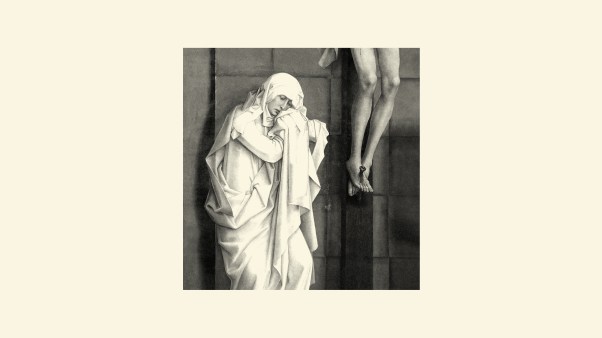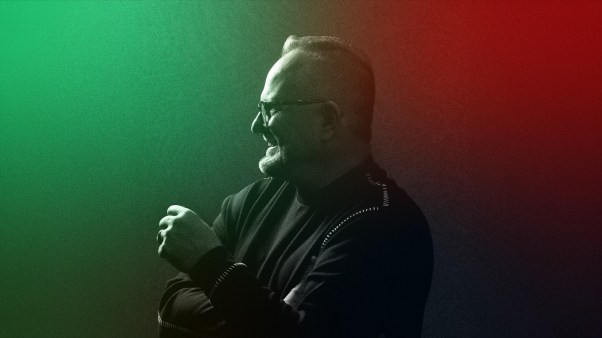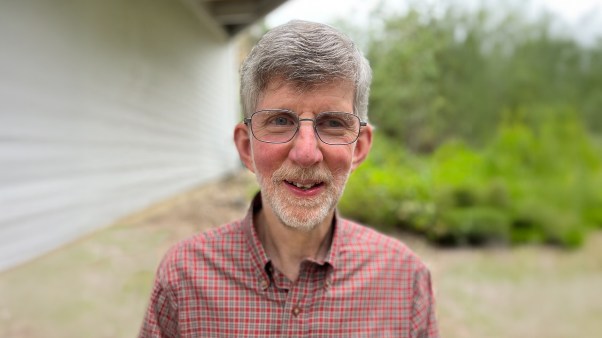Over the past few years, many of us have unfortunately become familiar with descriptors like the Great Resignation and the Great Disengagement. Even if you have not heard these terms, you are likely familiar with their meaning.
The former describes the onslaught of people quitting their jobs due to all sorts of current socioeconomic and mental health reasons, while the latter points to people keeping their jobs but having a profound sense of emotional disengagement with their work. Sometimes referred to as “quiet quitting,” such disengagement is especially prevalent in the “helping professions” like the medical industry, the education field, and some forms of ministry.
Both trends are, to some degree, part of what author Jennifer Moss calls the “burnout epidemic” in her book on chronic stress. This problem has accompanied a wider acceptance of hybrid work culture in response to the COVID-19 epidemic—which has further blurred the boundaries between our professional and personal lives.
As a professor of organizational communication, I am fascinated with the way people communicate about work and how that impacts their overall quality of life. And as a Christian, I am especially interested in the degree to which believers understand work as part of our callings.
For those of us who feel especially called to a particular kind of work or who seek to bring a sense of calling into our work, a hybrid work culture can be even more complex. That is because there’s the added pull of holy responsibility on top of structural complexities—a relational commitment to the Caller that can drive us to ignore healthy boundaries.
This year, Labor Day celebrates 140 years of seeking to recognize and honor the contributions of workers by offering an extra day of rest. And while work and rest may seem like opposites, they exist in the same spectrum of a healthy and meaningful life.
As we shift gears from the glories and exhaustions of summer to the rhythmic academic calendar schedule of fall, we have a chance to reexamine our relationship with work and rest—to reflect on what these concepts mean to us and why they should always be considered together.
On the one hand, we cannot talk about work and rest without acknowledging the privilege associated with both. With job loss on the rise for the past two years, it is a privilege to be employed—and with the cost of living as high as it is these days, it is a luxury to be able to choose to take a break from work and seek rest.
At the same time, the Lord invites his followers into a way of life that includes a mindset of working unto him (Col. 3:17) and resting like our Creator (Gen. 1; Heb. 4:9–10).
The problem is not work—it’s what we have done to work.
The narrative of Genesis introduces us to a Creator God who worked and said that it was good. Work was a form of worship—an expression of good, creativity, productivity, community, play, intentionality, and care. But in the Fall when sin entered the scene, a toxic form of work seeped into our world. We elevated work to a place in our lives that gave it the power to define our identities and worth—this is the problem.
When we approach our callings in a way that reflects the work of God, we are worshipping him in spirit and truth—yet we cannot talk about healthy work without talking about rest.
God paired work with rest by instituting the concept of Sabbath. Sabbath is not only a divine command but also an act of imitating the Creator. How we treat our time at work and time of rest goes hand in hand with and models our values to other people. How we treat Sabbath is part of our faithful witness and can breathe life into our professional callings.
When we take a break from work, we get perspective. Things get clearer, and we can see them in the big picture. Sabbath is part of the words and deeds by which others will know us.
I understand the difficulty of pursuing Sabbath. I am balancing the needs of my three-year-old, my spouse, ailing family members, my paid job, and myself. Taking a dedicated time away from what Charles E. Hummel calls “the tyranny of the urgent”—that is, choosing to tithe your time to God because he is the author of time—is hard no matter your life circumstances.
When I was single, taking a Sabbath risked greater loneliness as I sought to slow down and reflect, so I had to learn ways to integrate time with others and time with myself and God. When I was newly married, taking a Sabbath meant learning how my spouse experiences rest and then trying to integrate both of our needs. And now as a parent of a young child, Sabbath is less about physical rest and more about choosing to unplug from the hurried way of life to really be present with those God has given me.
In this way, Sabbath has reminded me how to compromise in every season of my life. It has revealed to me just how much I worry, plan, and strategize to keep my mind and heart busy rather than moving into a posture of listening and watching for what kind of rest is needed.
I am not simply talking about Sabbath as physical rest. In her book Sacred Rest, Saundra Dalton-Smith, MD, outlines seven types of rest that we all need: physical, mental, sensory, creative, emotional, social, and spiritual rest.
Rather than be overwhelmed by all the ways you could and should be resting, what if you took time to slow down and consider the area in which you are most in need of rest right now? What if you used this Labor Day as a clear time to consider your work and rest schedule in the past and then alter one area that might lead to greater rest in the future?
Princeton professor Heath W. Carter traced the evangelical origins of Labor Day and the modern labor movement—beginning in the 1890s, when local churches “set aside the Sunday before Labor Day as a time for lifting up working people’s voices and experiences.”
What if evangelicals today thought of Labor Day as a Christian holiday? What if we treated that day as a point of accountability to consider our relationship with work and rest as designed by our Creator? And what if we used this time to turn to our Caller and offer a Great Recommitment in our approach to life’s rhythms?
The logic of rest from work runs counter to the ways of the world. In Jesus’ upside-down kingdom, we might think of Sabbath like a tithe where, instead of money, we are giving our time and attention to God—and seeing him “throw open the floodgates of heaven and pour out so much blessing that there will not be room enough to store it” (Mal. 3:10).
That blessing may look different than we anticipate or expect, but even in this we can trust that the Lord knows us and cares for us. Choosing to rest is an act of trust in our heavenly Father.
Arianna Molloy is an associate professor of communication studies at Biola, specializing in organizational communication.











